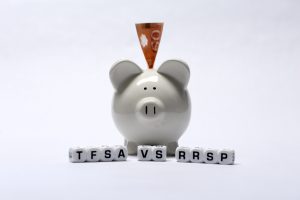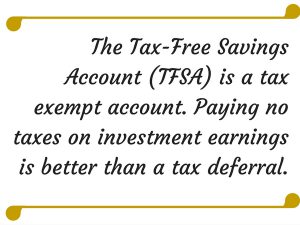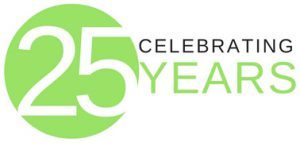Making your investment portfolio more profitable with tax planning
August 11, 2016

Tax management is something all investors should practice. After reading this article decide if you are paying too much income tax on your investment earnings.
The number one goal of investing is to focus on your after-tax return.
For example, if your return on investment is 5 per cent, that is just the beginning. If you pay 1 per cent in income taxes then your after-tax return is 4 per cent.
It is important to focus on your after-tax return. Failing to do this is a very common mistake most investors make.
Tax planning is a conversation you should have with your investment advisor or accountant. Advice given in this column is general and might not specifically apply to everyone.
A starting point is to make optimal use of the tax deferral accounts. These accounts, like an RRSP, RESP or RRIF, defer any income tax liability until funds are withdrawn from your account.
If you make RRSP contributions during the early years of your career any income tax liability based on investment income is deferred until funds are withdrawn, which could be decades away during your retirement.
You will still pay income tax, however you will have the benefit of delaying that income tax payment for several decades. The delay in paying taxes allows you to use that money to invest for your benefit.
Consider this an interest-free loan from the government that allows that money to work for you to make more money.
A second option is to use a tax-exempt account where any income tax that would ordinarily be paid on an investment, is not paid. Not paid now and not paid when funds are withdrawn from the account.
The Tax-Free Savings Account (TFSA) is a tax exempt account. Paying no taxes on investment earnings is better than a tax deferral.
You should note while RRSP contributions provide a tax deduction, contributions to a TFSA do not create a tax deduction.
The final type of account that many investors use is an Investment Account. Any investment income earned in an Investment Account is taxable during the year it was earned.
So much for tax theory, now let’s consider some tax strategies that can save you money by reducing the amount of taxes you pay.
I will assume you own both stocks and bonds. The question is: in which accounts should you hold these two different types of investments in order to reduce your tax bill?
From a tax perspective interest income is the least desirable because 100% of it is taxable.
Better to defer that tax liability and hold interest-bearing investments in a RRSP, RESP or RRIF.
Stocks can pay dividends and provide the opportunity for capital gains, and both dividends and capital gains have income tax benefits. In most cases stocks should be held in your Investment Account.
The best income tax shelter available to Canadians is the TFSA. No income tax is paid on any investment held.
There could be a small argument supporting including interest bearing investments in a TFSA however, during these times of incredibly low interest-rates I think that is an error.
I recommend that most people hold equity investments intended for long-term growth in their TFSA because over time the potential for profit is significantly higher with equities than low interest bearing bonds, and other interest bearing investments.
As mentioned at the start of this article, now is the time for you to consider if you are paying too much income tax on your investment earnings.
Can your Investment Portfolio be more profitable after-tax if you do a little tax planning?

